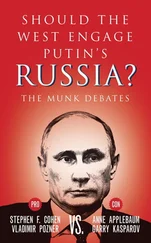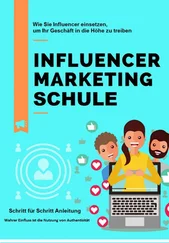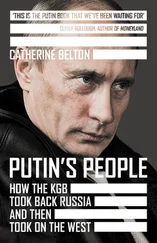The USSR’s main use for oil was for domestic purposes, Moscow always prizing independence from a hostile capitalist world. But Moscow needed that world too because Russia, which before the revolution had been the world’s greatest exporter of grain, had become by the late 1970s the world’s largest importer. In 1963 Khrushchev had spent a third of the country’s gold to buy grain. The collective agriculture forcibly imposed by Stalin was a failure. As the head of a collective farm once said to me: “…collective farming could have worked. It worked in Israel…. But it couldn’t be done by force and decree.” [222] Lourie, Russia Speaks , p. 132.
Storage and distribution were also significant problems, up to a third of a year’s crop lost to spillage and spoilage.
Sales of oil on the world’s open market became increasingly important and paid for meat, grain, and machinery that the USSR imported. Gas and oil also had their political applications. The Kremlin’s aid to Cuba, to take one example, came largely in the form of oil. This was pretty much the situation until 1985, when Mikhail Gorbachev came to power. Perestroika, his plan to rebuild the system, assumed there was still something left worth rebuilding. One of Gorbachev’s first acts in office was to fire the long-term director of Gosplan, the agency that planned and regulated the entire Soviet economy, everything from nails to rocket ships. That director was none other than Stalin’s lucky and tenacious oil commissar Nikolai Baibakov, who had remained loyal to his old boss, saying of Khrushchev’s secret speech denouncing Stalin in 1956: “Maybe there were individual acts of repression but what Stalin was denounced for, that never happened.” [223] “Nikolai Baibakov, Stalin’s oil supremo, he went on to direct the Soviet economy,” Guardian , April 16, 2008.
The “maybe” is a particularly nice touch.
And “maybe” Gorbachev could have rebuilt the Soviet economy or enough of it to form a new union composed of Russia, Belarus, Ukraine, and northern Kazakhstan, as Aleksandr Solzhenitsyn proposed in his 1991 book Rebuilding Russia . But there were too many forces opposed to that—the failed and costly war in Afghanistan; the nationalistic aspirations of the smaller states, whose efforts at withdrawal had a sort of avalanche effect; and the wisdom, or the weakness, not to use force against the opposition as the Chinese chose to do on Tiananmen Square in June 1989, those protesters in part inspired by Gorbachev’s presence in Beijing at the time.
But as much as anything it was oil that did Gorbachev in. It was $50.11 a barrel in 1985 when he took office, but fell more than 50 percent, to $24.71, during his first full year in power. And the price stayed in the twenties from 1986 to 1991 except for two years: 1987, when it was $31.68, and 1990—$35.62. There is some but insufficient evidence that William Casey and the CIA, working with OPEC, engaged in a clandestine campaign to bring down the price of oil and the Soviet Union with it. That there is insufficient evidence does not of course prevent many Russians from insisting that the conspiracy was all too real and, moreover, was the forerunner of today’s efforts to weaken and subvert Putin’s Russia through the use of NGOs and by funding movements like the Orange Revolution in Ukraine. Even a reform-minded high-ranking official like Egor Gaidar could write:
The timeline of the collapse of the Soviet Union can be traced to September 13, 1985. On this date, Sheikh Ahmed Zaki Yamani, the minister of oil of Saudi Arabia, declared that the monarchy had decided to alter its oil policy radically. The Saudis stopped protecting oil prices, and Saudi Arabia quickly regained its share in the world market. During the next six months, oil production in Saudi Arabia increased fourfold, while oil prices collapsed by approximately the same amount in real terms.
As a result, the Soviet Union lost approximately $20 billion per year, money without which the country simply could not survive. [224] Egor Gaidar, “The Soviet Collapse,” American Enterprise Institute, April 2007.
The Politburo was in a panic over those $20-billion-a-year losses from the fall in oil prices, and, contrary to what was generally thought, the USSR did not hold $36 billion in gold reserves but only $7.6 billion because of Khrushchev’s extravagances in buying grain. There really was no need for theories about cunning conspiracies. The Union of Soviet Socialist Republics was broken and broke.
* * *
A joke of the 1990s offers the following definition of Russian business: three guys steal a case of vodka, sell it all, and then go get drunk on the proceeds. And truly in that decade there was something drunken about all Russian life from the street to the Kremlin, where the first freely elected Russian president, Boris Yeltsin, a burly Siberian with a W. C. Fields nose, became more of an embarrassing boozer with each passing year. Still, President Bill Clinton did say: “Yeltsin drunk is better than most of the alternatives sober.” [225] Talbott, The Russia Hand , p. 185.
Clinton must have had a quite low opinion of those alternatives given Yeltsin’s behavior one night at Blair House, the vice president’s official residence. “Yeltsin was roaring drunk, lurching from room to room in his undershorts … demanding, ‘Pizza! Pizza!’” [226] Ibid., p. 135.
* * *
In the nineties crime lords arose out of nowhere, suddenly rich, powerful, and well armed with all the weapons the country was awash in. At one point Yeltsin declared they controlled 40 percent of the economy. Gangs shot it out on the streets. At one of their favorite hangouts, the still trendy Aist (Stork) restaurant in central Moscow, the diners looked on in horror as a gangster rolled a grenade like a bowling ball along the floor toward a rival’s table. (A dud, as it turned out.)
Though Russian gangsters were making small fortunes via extortion, protection, drugs, and casinos, the great fortunes would end up in the hands of educated men like Berezovsky, who held a Ph.D. in mathematics, and Mikhail Khodorkovsky, who, before he became Russia’s richest man and its most famous prisoner, earned a degree in engineering.
Khodorkovsky was born in 1963 in Moscow, the only child of a mixed marriage, his father Jewish, his mother Russian. In a sense that left him being neither fish nor fowl because Jews trace lineage through the mother and Russians through the father. People like Khodorkovsky had the choice of having their internal passports marked either “Russian” or “Jewish,” which was considered a nationality. There were any number of advantages in choosing “Russian,” though they only went so far, as a famous joke illustrates: A friend comes running into Moishe’s apartment all excited, saying: “Moishe, down on the square they’re beating up Jews!” Moishe replies grandly: “What do I care? My passport is marked ‘Russian.’” “Moishe, they’re not punching them in the passport, they’re punching them in the face!”
A little prince in a dingy apartment, Khodorkovsky grew up adored and protected by his parents, who chose never to air anti-Soviet sentiments when their child was around. Khodorkovsky, who as a little boy wanted only to be a factory manager when he grew up and was nicknamed “the Director” by his classmates in kindergarten, proved adept at working the first system he encountered—the Young Communist League, the Komsomol. Founded right after the revolution in 1918 for people between fourteen and twenty-eight, the Komsomol had two basic purposes—to harness the energy of the young into clubs and supervised events like dance and sports, and to help make good little Soviet citizens out of them. It was also an organizational structure for the politically ambitious to climb, a transition between the Pioneers (Communist boy scouts) and the Communist Party itself.
Читать дальше
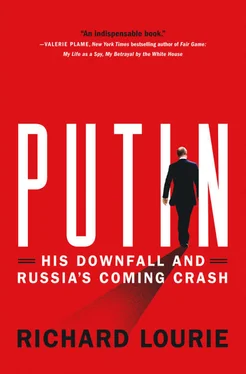

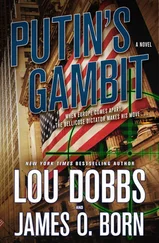
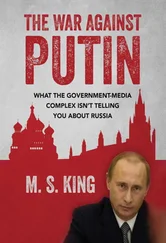
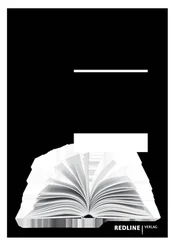
![Stephan Orth - Behind Putin's Curtain - Friendships and Misadventures Inside Russia [aka Couchsurfing in Russia]](/books/415210/stephan-orth-behind-putin-s-curtain-friendships-a-thumb.webp)

